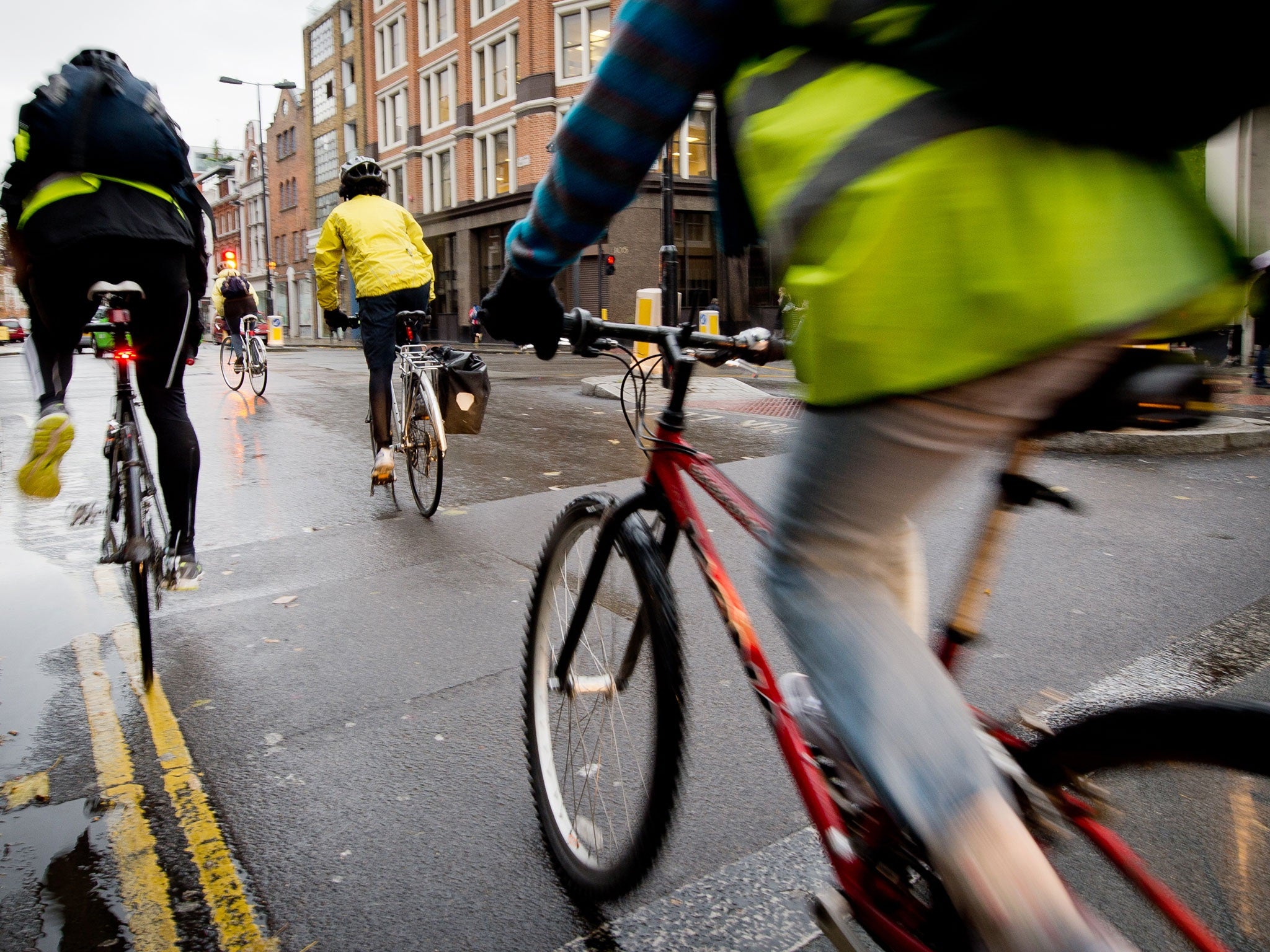London's bike boom: 8 ways to keep the momentum
Bikes now make up around 16 per cent of traffic in Central London, yet cyclists are still facing some major uphill battles regarding safety and accessibility

Encouraging news this morning from Transport for London, the body that manages the capital’s biggest roads: “Across the TfL road network, cycling levels in Quarter 3 of 2014/15 (14 September to 6 December) were 10 per cent higher than in the same quarter the previous year, and the highest since records began in 2000.
“It was the fifth record quarter in a row. By the end of 2014/15, TfL forecasts a 12 per cent rise from the previous financial year.” Other highlights from a triumphant press release: “Bikes now make up around 16 per cent of traffic in Central London, rising to around a quarter or even half of all journeys on some routes during peak hours.”
“Last year was also a record for hires on London’s Cycle Hire scheme, with 10,023,987 journeys made – up five per cent on 2012 (the previous highest year) and 25 per cent on 2013.”
But how do we keep the momentum, here and elsewhere?
- Convince the doubters. There will always be those who believe roads are for cars, and that bikes are to be tolerated at best. Last week, for example, The London Taxi Drivers Association (LTDA) threatened to launch a legal challenge to TfL’s plans for two, major cycle super-highways across London. “The cycling minority are very over represented!” it said in a tweet. Minority? Stats like today’s will help challenge that impression.
- Be nice. If this is partly a PR battle, it can only help if those of us who do ride are nice and well-behaved. Don’t give the doubters and haters a reason to say, “bloody cyclists”, because that pervasive view among some road users is damaging to us all. (This isn’t the only way to challenge it but, like I said, it can only help.)
- Target the trucks. Credit where it’s due to London and the haulage industry for tightening the regulation of lorries - the biggest threats on the road - so that they have to include safety features such as sensors, cameras and better mirrors, but there’s loads to do on this front. Last week, a TfL taskforce revealed that it had issued more than 1,000 penalty notices, stopped more than 4,000 lorries and taken 47 off the road since October 2013.
- Don't compromise. Grand schemes, typically announced with a fanfare by Boris Johnson, tend then to get watered down. Even his cycle superhighways have shown signs of being reduced, sometimes after lobbying by less enlightened businesses (looking at you, Canary Wharf). It’s vital that we put pressure on London to follow through.
- Lobby local councils. The TfL stats are great but only cover the big roads it is responsible for. The majority are the responsibility of councils, some of whom have done little or nothing to improve provision for cycling. It’s up to residents to put the pressure on them (see the Space for Cycling Campaign).
- Build for bicycles. Many train and tube stations are finally waking up to the need for better cycle parking facilities and racks. Meanwhile there are guidelines for developers that require a certain amount of bike storage to be included in new housing. Norman Foster’s latest design for an apartment block in Islington goes way over the minimum, and includes 1,500 cycle parking spaces - around enough for one per bedroom - but only 200 spaces for cars.
- Corporate responsiblity. Offices need to play their part, by encouraging cycling or at least making it easier by installing showers and exceeding the minimum requirement for internal bike parking places. When the Walkie Talkie building was going up in the City, the developers had pre-let all its bike parking spaces when only half the office space had been accounted for. It is clear that there is a commercial imperative to do more.
- Open the doors. Bike shops, I would argue, have not quite caught up with the boom but the market ought to demand that, for example, more of them open before and after office hours - the times when the majority of those fuelling the boom need them.
Join our commenting forum
Join thought-provoking conversations, follow other Independent readers and see their replies
Comments
Bookmark popover
Removed from bookmarks